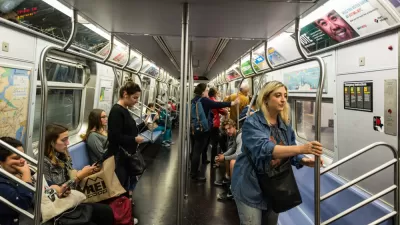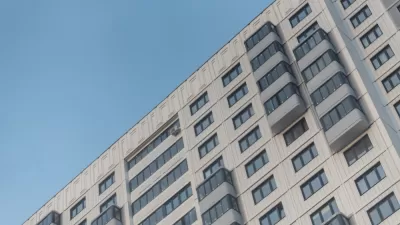With the unfettered ability to zone, plan and fund construction projects, the government of Shanghai is turning the city into what looks like "one immense architectural competition."
"Anyone accustomed to the mixture of incremental improvement but generalized decay of Canadian cities, or the pleasing but rather stagnant cities of Europe, will be blown away by Shanghai.
There's so much money that has rushed into, and through, the city that is transforming itself daily. Sure, there is a worldwide economic slowdown, and critics apparently delight in underscoring how it has hit China. Some hit: a growth rate of 'only' 8 per cent.
The government in Shanghai has powers to rezone land, displace people and pursue projects quickly that don't exist in more democratic societies. In Shanghai, they just go ahead and build the astonishing magnetic train line that takes eight minutes to whisk people to the international airport.
Need rapid transit? Build two sensational, clean subway lines charging passengers about 60 cents, and plan a bunch more. Need a link to the domestic airport? Start building another magnetic train. It's what you can do with money, ambition and power. Plan not for tomorrow, but for a decade from now and beyond."
FULL STORY: From stagnation to swaggering skyscrapers, Shanghai is making up for lost time

Trump Administration Could Effectively End Housing Voucher Program
Federal officials are eyeing major cuts to the Section 8 program that helps millions of low-income households pay rent.

Planetizen Federal Action Tracker
A weekly monitor of how Trump’s orders and actions are impacting planners and planning in America.

Ken Jennings Launches Transit Web Series
The Jeopardy champ wants you to ride public transit.

Washington Legislature Passes Rent Increase Cap
A bill that caps rent increases at 7 percent plus inflation is headed to the governor’s desk.

From Planning to Action: How LA County Is Rethinking Climate Resilience
Chief Sustainability Officer Rita Kampalath outlines the County’s shift from planning to implementation in its climate resilience efforts, emphasizing cross-departmental coordination, updated recovery strategies, and the need for flexible funding.

New Mexico Aging Department Commits to Helping Seniors Age ‘In Place’ and ‘Autonomously’ in New Draft Plan
As New Mexico’s population of seniors continues to grow, the state’s aging department is proposing expanded initiatives to help seniors maintain their autonomy while also supporting family caregivers.
Urban Design for Planners 1: Software Tools
This six-course series explores essential urban design concepts using open source software and equips planners with the tools they need to participate fully in the urban design process.
Planning for Universal Design
Learn the tools for implementing Universal Design in planning regulations.
Heyer Gruel & Associates PA
Ada County Highway District
Institute for Housing and Urban Development Studies (IHS)
City of Grandview
Harvard GSD Executive Education
Toledo-Lucas County Plan Commissions
Salt Lake City
NYU Wagner Graduate School of Public Service





























